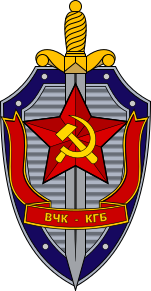Undoubtedly, many people mentally associate intelligence or Russian secret services – to be exact, Soviet – to the KGB (Komitet gosudárstvennoy bezopásnosti, Committee for State Security). Unfortunately for the followers of Bond, the KGB, the Soviet-Russian secret service par excellence, was dismantled at the beginning of the 1990s by Mikhail Gorbachev, probably because he had become a powerful monster in terms of attributions, skills and knowledge, but, especially for its alleged involvement in the failed coup d’état of August 1991. Its power was distributed mainly among three different agencies: FSB (Federal Security Service), SVR (Foreign Intelligence Service) and FSO (Federal Protection Service), who joined the historical rival of the KGB, the GRU (General Intelligence Directorate), the Russian military intelligence service that survived the fall of the USSR (perhaps because of the support for the Soviet president during the coup, unlike the KGB). SIGINT attributions focused on an agency called FAPSI, equivalent to the US NSA, dismantled in 2003 and whose power, as in the KGB, was distributed among the different Russian services.
 After the dismantling of the FAPSI, the four services listed above make up the bulk of the Russian intelligence community from the cyber point of view-at least the official one, as we will see in this series of posts. An excellent description of this intelligence community, as far as information security, SIGINT or CNO is concerned, can be found in chapter fifteen of the second edition of Jeffrey Car’s Inside Cyber Warfare: Mapping the Cyber Underworld (ed. O’Reilly, 2011).
After the dismantling of the FAPSI, the four services listed above make up the bulk of the Russian intelligence community from the cyber point of view-at least the official one, as we will see in this series of posts. An excellent description of this intelligence community, as far as information security, SIGINT or CNO is concerned, can be found in chapter fifteen of the second edition of Jeffrey Car’s Inside Cyber Warfare: Mapping the Cyber Underworld (ed. O’Reilly, 2011).
To get an idea of the potential of Russian services it is necessary to talk about their budget. According to open sources (such as Julian Cooper’s The Funding of the Power Agencies of the Russian State. The Journal of Power Institutions in Post-Soviet Societies, Issue 6. 2007, or The Funding of the Power Agencies of the Russian State: An Update, 2005 to 2014 and Beyond. The Journal of Power Institutions in Post-Soviet Societies. Issue 16, 2014), in 2013 the budget for what the Russians call “Security Services” – a concept that includes the FSO, FSB (except the Border Service) and SVR – exceeded 4 billion euros. The distribution by service is classified, and obviously the budget of the GRU is included in the one corresponding to the Russian Ministry of Defense, with which it is completely unknown. This money joins the more than 300,000 people who work – again, classified data – in the different intelligence services.
To be able to compare these data with other services, here’s a curiosity: the budget corresponding to the CNI is estimated at about 240 million euros, seventeen times less than the Russian one, and its number of employees at about 2,500 people. Of course, comparisons are odious…
